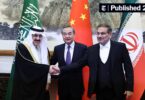Pakistan Business Council, a representative body of 82 big business houses that contribute 18 percent revenue to the government’s kitty, has expressed sharp resentment over the more the 35 percent increase in electricity tariff. The vested interest driven energy policy that has damaged the national interest persistently over the past 25 years has been critically commented over and over in these columns but to no avail. The council has accused the federal government of taking knee-jerk U-turns in policy matters that wipes out competitiveness of export industry and has shattered investors’ confidence.
All Pakistan Textiles Association (APTIMA), which runs 400 textile units, has criticised the government for not honouring its commitment to provide electricity at the subsidized rate of 7.5 cents per unit. The preferential tariff was agreed to make textiles competitive in global market with the ones that come from the South East Asian developing countries, where the textile industry get electricity at low price and as compared with sky-high tariff in Pakistan in addition to reduced production cost by virtue of economies of scale with the induction of latest technologies. In Pakistan no incentive has been given to entrepreneurs for technology improvement and products innovations.
Power Division has denied withdrawal of any committed power tariff reduction facility and has contended that subsidy was allowed on the “base tariff” and not the total amount of electricity bill which include half a dozen surcharges and taxes, making the per unit price more than Ra.40 or 25 cents per unit. This contention does not seem tenable in view of directives issued to DICOS on January 13 for not applying subsidy to export industry on the total amount of bill. It implies that that prior to these directives the subsidy scheme included the surcharges and taxes as well. Fuel price adjustment account for 40 percent increase in the electricity bill for all categories of honest consumers whereas Neelum Jhelum surcharge, debt surcharge, electricity duty and sales tax add further 30 percent to the billed amount. In other words honest consumers are victimized for the capacity charges of IPPs, influential electricity bills defaulters, electricity pilferers and huge line losses of the rag-tag power transmission system.
Another stumbling block that perpetuates the crisis of export industries is the abnormal delay in the sales tax refund on exports. In the previous fiscal year four export industries such as textile, leather and sports goods and surgical instruments had availed zero rate sales tax facility which was withdrawn in the current year budget. Prime Minister Imran Khan has directed Advisor on textiles and production Abdul Razzak Dawoood and Chairman FBR Shabbar Zaidi to clear all sales tax refund claims within three days. Likewise, the delay in the implantation of decision for withdrawal of all duties on cotton imports to meet the shortfall of 5 million bales will increase the production cost of cloth and readymade garments, eliminating their competitive edge in the international market. But to the detriment of national interest, cartel of cotton producers that has representatives in the federal cabinet have managed delay in withdrawal of all duties on the import of raw cotton.
It is not only the textile sector that is reeling under the heavy burden of production cost, the auto sector is heading towards closure because of 72 percent decline in sales cars of and other vehicles; expensive imported completely knockdown and semi knockdown kits, and governments failure to facilitate strong linkage between the automobile assembling units and local auto parts makers. Because of further deterioration in investment climate foreign investors are shying away from making investment in the automobile industry, which is the second large scale manufacturing industry in terms of jobs creation after textiles. The future of Datsun cars manufacturing project with greater local content hangs in the balance as Ghandara Nissan Motors has not received road map from Nissan Motors Company Limited, regarding localization of parts and components. Renault Motors of France has shelved its plan of setting up cars and trucks manufacturing plant in Pakistan. It is high time to review the policies that have further compounded the crisis in the manufacturing sector.






